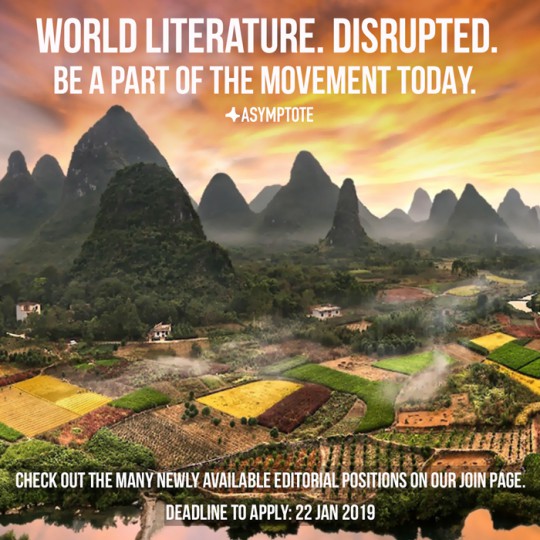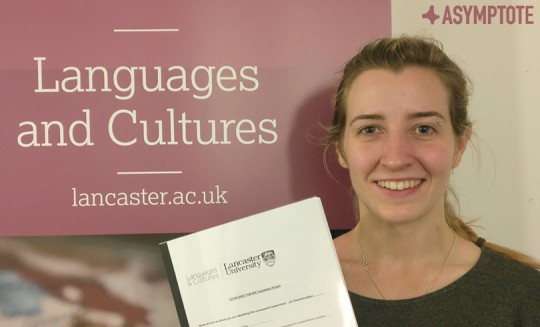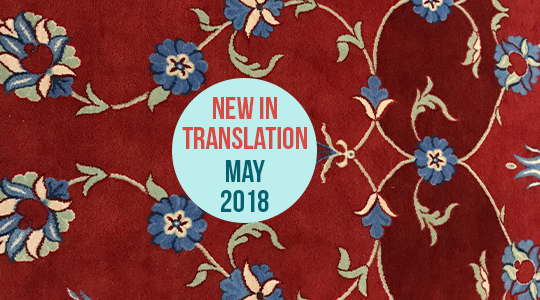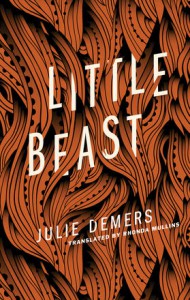Did you hear? We recently released our first recruitment drive of the year, advertising many newly available openings (from poetry editor to social media manager), offering readers a chance to get involved behind the scenes as Asymptote enters its ninth year of curating the best in world literature. Some of you who might be curious about this opportunity (bear in mind that the application deadline is less than 10 days away!) may wonder what it’s like to work for a dynamic literary journal such as ours, so today, in a weekend special, we are sharing a testimonial by Communications Manager Emma Page, who tells us why she chose to become a part of our global movement.
After completing my MA in Translation at Lancaster University in the UK this past October, I spent quite a bit of time figuring out what to do with myself. I considered looking for a position in publishing, but opportunities appeared few and far between. I eventually landed on freelance business translation, which I love, but the work didn’t quench my thirst for the arts. At a loss and living on the isolated Isle of Man, I started looking for remote opportunities at literary journals and websites.
I had been reading Asymptote since it was a brand-new venture and I was a high schooler just discovering the world of literary translation, but I had never considered working for them. As freelancers and artists in the social-media era, we are often told by our elders to be suspicious of “opportunities” to trade our work for “experience” or “exposure.” It’s a catch-22: If you can’t afford to work for free, you can’t gain the experience to qualify for the rare, extremely competitive paid gigs. I believe this is a real problem in the arts world, and that it directly contributes to the marginalization of non-wealthy voices. READ MORE…






